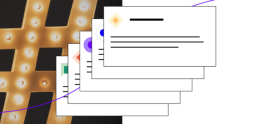Is Amber The Solution To Link Rot For WordPress Site Owners?
The web has come a long way since the days in the early nineties when Tim Berners-Lee first published his ideas about a new way to organize information. But the web as we know it would be recognizable — if astonishing — to its early users because the core technology of the web, the link, is still the tie that binds the world’s information together.
But the humble hyperlink has a problem — content tends to disappear. All-too-often a link leads nowhere. If a piece of content stays on the web for long enough, a proportion of its links will be broken. The longer it’s up, the more likely it is that the links will break; a process known as link rot.
There are many reasons that links break. Perhaps the site no longer exists because no one is around to pay the hosting bill any more. Perhaps the entire site moved to a different domain. Quite often, sites will be “upgraded” to a new content management system and the owners won’t properly redirect the old links.
Whatever the cause, broken links are bad for content creators. Broken links offer a poor user experience, especially when those links are a crucial part of the content. Additionally, search engines like Google frown on pages with large numbers of broken links. Then there’s the historical value: the web is a complex network of interconnected content — when the connections between content are degraded so is the value of the web as a whole.
Amber is an attempt to provide a solution to the problem of link rot. In fact, it’s a relatively simple solution. In the WordPress version, users install the Amber plugin. When content is published that includes a link, Amber will create an archive copy of the linked-to page. If the page disappears from the web, Amber displays a pop-up above the link that lets the user know, and offers to show them the archived versions.
There are obvious limitations to this approach. A large website with tens of thousands of links would significantly increase its storage use if it archived every page it linked to. Amber offers site owners the option of linking to external web archiving services like Archive.org, in addition to the ability to create local archive copies.
Amber has some big-hitters behind it. The project is led by the Berkman Center For Internet And Society at Harvard University, and it’s based on ideas from Tim Berners-Lee himself, who worries that the increasing centralization of the Internet is likely to exacerbate the problem of link rot.
If you’re thinking Amber sounds like a good idea, be sure to do some research about the copyright status of the content you’re linking to. The creators of Amber think that, in most cases, site owners will be able to claim fair use when they create an archive, but I wouldn’t like to bet my business on it without specific legal advice. If you don’t want your site to be part of an Amber archive, you’ll be happy to hear that it does support robots.txt.
Amber isn’t something that most sites need, but for bloggers, news sites, and others that value the permanence of the content they link to, it’s worth taking a look.



